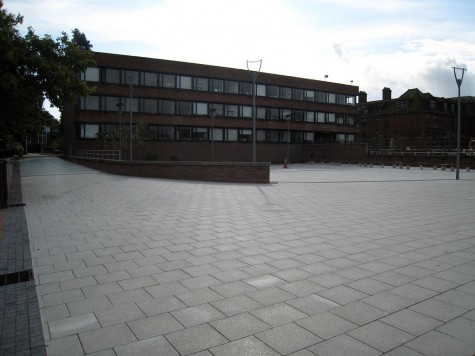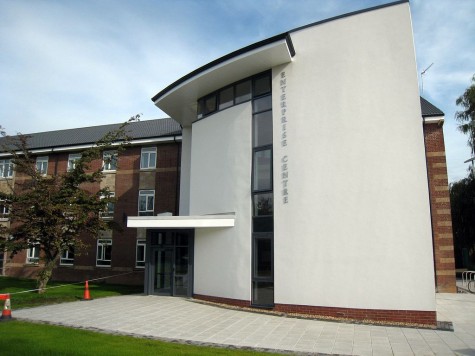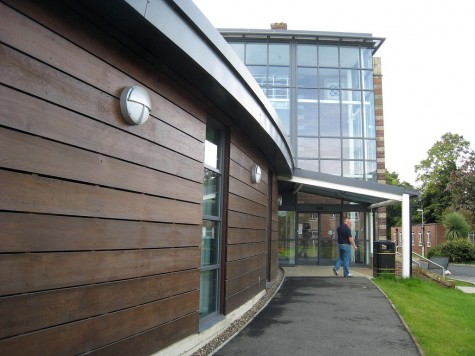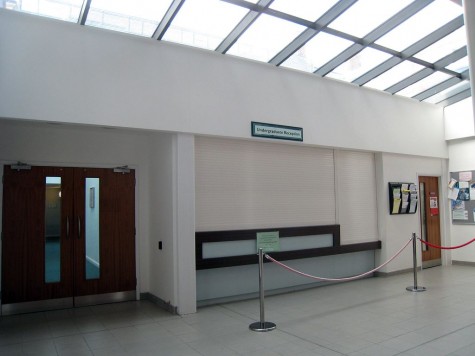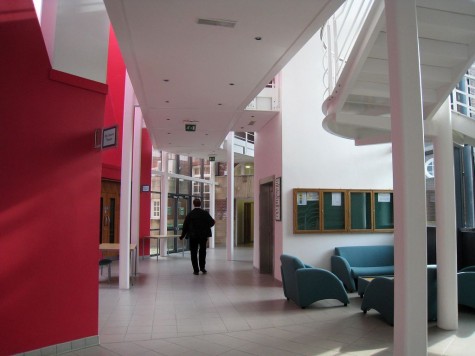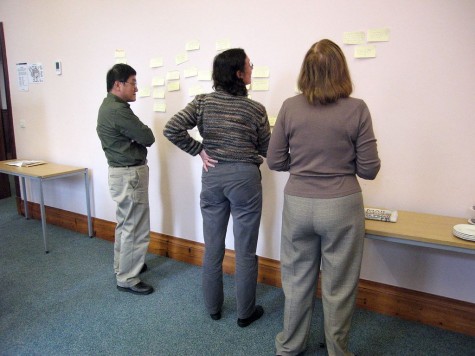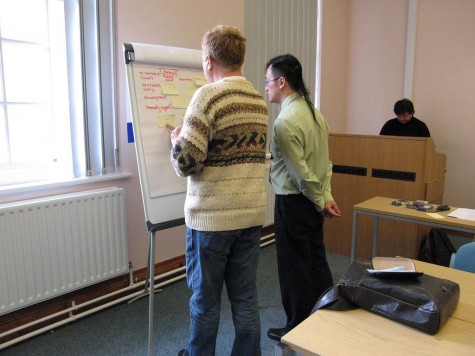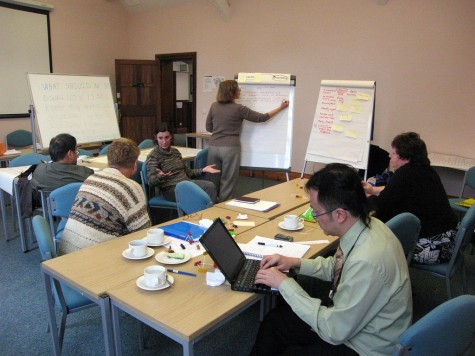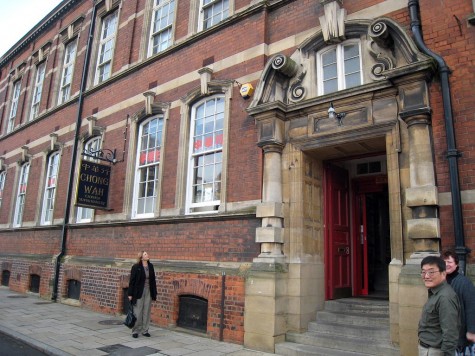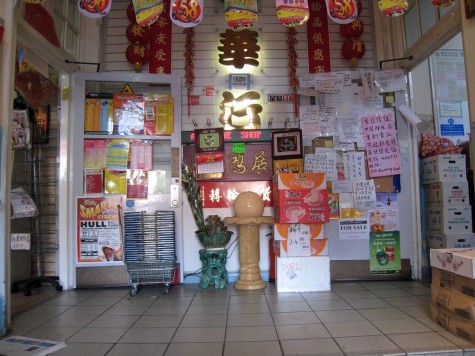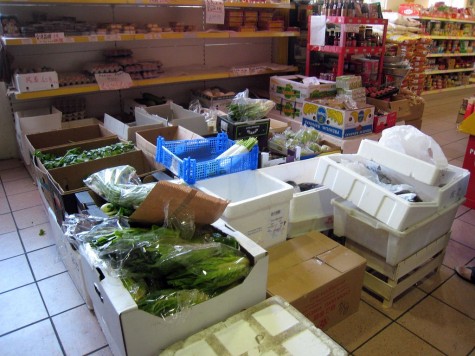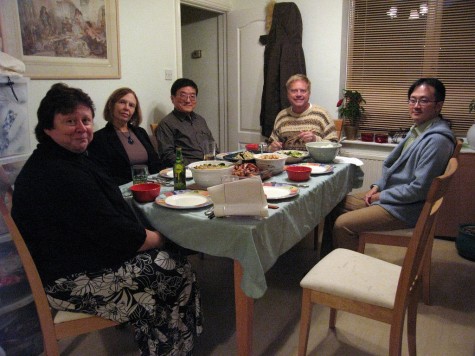Amongst the more traditional brick buildings, I noticed the modernity of the Enterprise Centre.
I liked the curve in the Wiske building (where humanities classes are taught) on the way to the Hull University Business School.
Since classes had not yet begun, the undergraduate reception desk in the business school was still closed.
The business school moved into this new complex of renovated buildings in 2005. The offices show more of the original features. while the interconnecting hallways between buildings are completely modern.
Here’s what learning looks like for senior academics. Based on a triggering question, we jotted ideas down on post-it notes. Jim, Angela and Allenna were looking at ways of clustering the ideas.
Todd and Thomas took some clusters of ideas, and fleshed them out more on flip charts.
A syntegration includes time for discussion and reflection. Allenna facilitated the conversation, marking up notes as the group converged.
As a customary way of showing appreciation for hospitality when I travel, I often prepare dinner in the kitchens of my hosts. Jennifer mentioned that Chong Wah has a wide variety of Chinese ingredients.
In the entry to the store, Chinese signs are not a surprise. The large stone ball spinning on a water fountain is a special touch.
I was happy to find a good selection of Chinese vegetables that would be difficult to find in UK supermarkets oriented towards westerners.
I was also glad to see familiar brands on sauces and canned goods, that are otherwise heavy to bring in my suitcase.
I take requests and dietary preferences as a special challenge. This time, some vegetarian dishes were in order.
The life of an itinerary scholar combines lifelong learning with social broadening. I always look forward to share with my friends and colleague in the UK (as well as those from other places in the world who happen to convene in opportune places).

